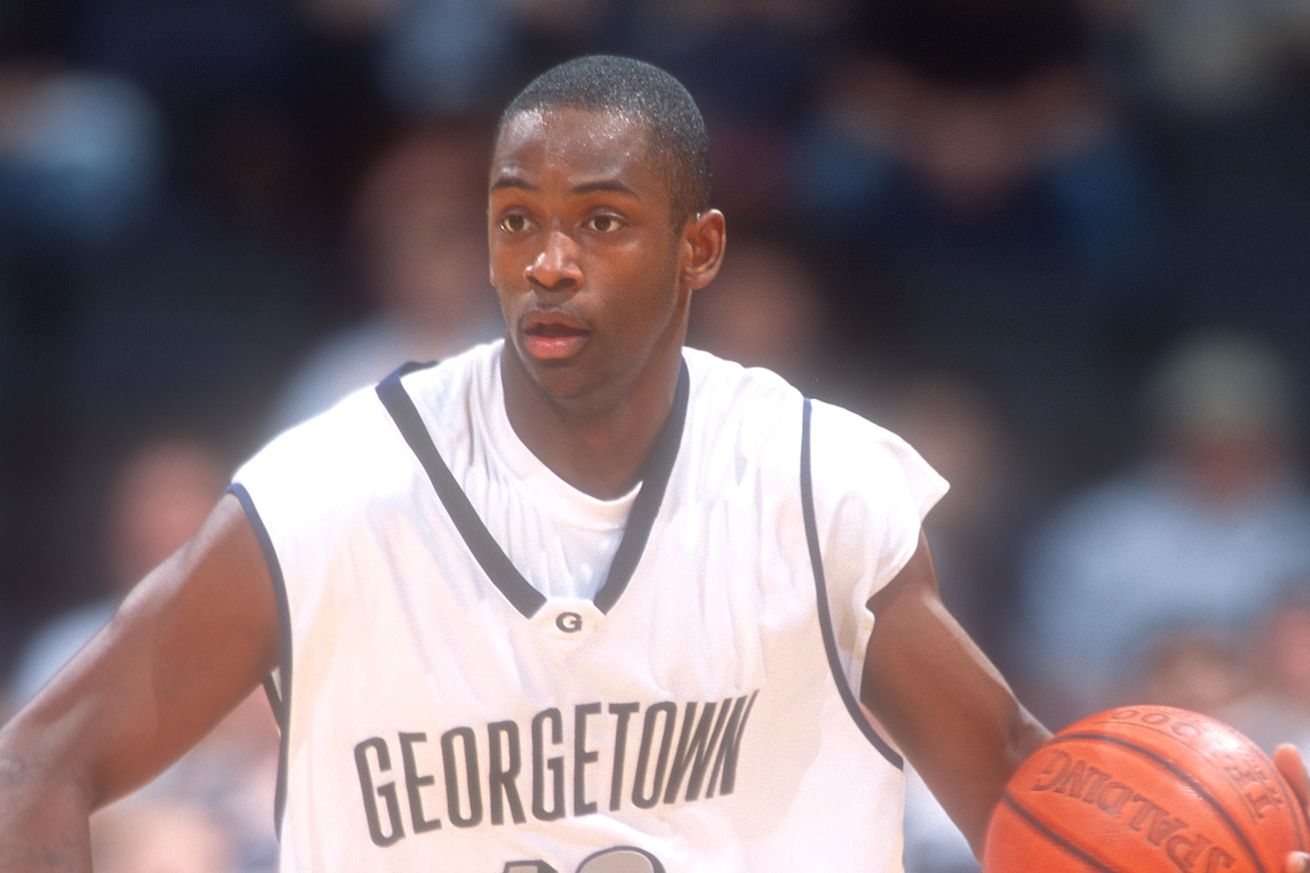
‘Nickel Boys’ is up for Best Picture and Best Adapted Screenplay
This year at the 97th Academy Awards, a former player from your Georgetown Hoyas will be in attendance as a nominee as both a director and writer. RaMell Ross, who played guard/forward for Georgetown from 2000-05, has seen his film “Nickel Boys” recognized with nominations for Best Picture and Best Adapted Screenplay. Ross shares the nomination for Best Adapted Screenplay with Joslyn Barnes.
Congratulations to Georgetown alumnus and acclaimed director RaMell Ross (C’05) on his two Oscar nominations for Best Picture and Best Adapted Screenplay for Nickel Boys! #HoyasInHollywood pic.twitter.com/GLyGBuzGLv
— Georgetown Black Alumni Council (@HoyaBlackAlumni) January 28, 2025
Born into a military family in Frankfurt, Germany, and raised in Fairfax, Virginia, RaMell Ross’s journey began on the basketball court. Ross was a highly-touted prospect, earning Northern Region Player of the Year, District Co-Player of the Year, and McDonald’s All-American Honorable Mention honors in high school. His prowess on the court earned him a basketball scholarship to Georgetown University, where he studied sociology and English.
During his time on the Hilltop from 2000 to 2005, Ross played guard/forward for the Hoyas, under coaches Craig Esherick and John Thompson III. Ross’s basketball career faced roadblocks due to injuries, requiring him to sit out for his senior year of high school after a shoulder surgery. He also had his 2001-2002 season cut short due to foot surgery. In four seasons, he only played 47 games. Though injuries hampered his basketball career, Ross’s time at Georgetown proved to be formative.
He told The Washington Post that being a guard required vision, sensing what to do, and anticipating where others would be. He said, “The first connection is space, vision, time, prediction. Snapshots of reality, choreography. And, maybe even more specifically, a type of time-traveling.”
According to Mark Martino, who coached Ross at Lake Braddock, Ross could have been one of the top college players in the country if it weren’t for the injuries. Ross himself recognized the need to pivot, telling The Athletic, “I needed to exchange that time I would be practicing for something else. Or else, corrosion would’ve started happening on the inside.”
RaMell Ross will always love basketball. He played guard at Georgetown and in the UK.
He didn’t know that love eventually would pivot to creating award-winning stories through film.@WeeseSports on the Oscar-nominated director: https://t.co/ga2SxpkisY pic.twitter.com/ZFTG6JRirT
— The Athletic (@TheAthletic) March 2, 2025
After graduating from Georgetown in 2005, Ross played professional basketball in Northern Ireland while also working for PeacePlayers International, an organization using basketball to bridge social divides. It was during this time that Ross’s interest in photography and filmmaking began to blossom. He took a photography class in his final year at Georgetown and purchased his first camera, which sparked a passion.
Ross moved to Greensboro, Alabama, in 2009 and lived there full-time until 2012. There, he coached basketball and taught photography, capturing images of the community. According to Filmmaker Magazine, Ross says he has always looked at things in terms of movement and their relationship to what came before and after.
In 2014, Ross earned a Master of Fine Arts degree in photography from the Rhode Island School of Design (RISD). He was named one of the “25 New Faces of Independent Film” by Filmmaker Magazine in 2015. Ross’s background in photography has significantly influenced his filmmaking style.
Ross told TIFF Originals that cinema skipped photography, and moving images caused people to postpone photography’s meaning. The films that he makes center the photograph and the plurality and expansiveness of a single point in time and then build those together in order to do a narrative.
“Nickel Boys,” based on Colson Whitehead’s Pulitzer Prize-winning novel, tells the harrowing story of two Black boys, Elwood and Turner, who endure horrific abuse at a reform school in the Jim Crow South. The film draws inspiration from the real-life Dozier School for Boys in Florida, where staff physically and sexually abused hundreds of children.
Ross’s unique filmmaking approach, characterized by a first-person point of view and a “sentient perspective,” creates an immersive and deeply personal experience for the viewer. Ross calls this approach “Black subjectivity.” Instead of rendering the visuals second fiddle to the story, Ross elevates the image to paramount importance, understanding that a film’s visual and narrative landscapes are indivisible.
Ross told The Georgetown Voice that he hopes to “renew the encounter” between the individuals on-screen, behind the camera, and in the theater seats.
According to his interview with TIFF Originals, to bring the camera into the body is a way to get to something closer to truth and the way that humans see the world. The film has garnered critical acclaim for its innovative style and powerful storytelling.
Ross has described “Nickel Boys” as a “genuine unicorn of a film,” emphasizing its importance in preserving the memory of the boys whose lives were lost. He told Brown University, where he is an Associate Professor of Visual Art, that with the Oscar nomination, the film is “celebrating the memory of these boys, and with the Oscar nomination, we’re celebrating the instantiation of their story in cinema history,” and that they “were able to elevate this story to a place where it can’t be erased.”
Ross’s journey from Georgetown basketball to Oscar-nominated filmmaker is an inspiring example of how diverse experiences and passions can converge to create impactful art. His time on the court instilled in him a unique perspective, awareness, and visual intelligence that he now brings to his filmmaking.
Ross’s story is a testament to the power of interdisciplinary thinking and the ability to find creative expression in unexpected places. As “Nickel Boys” competes for the film industry’s highest honors, the Georgetown community celebrates one of its own.